Authors
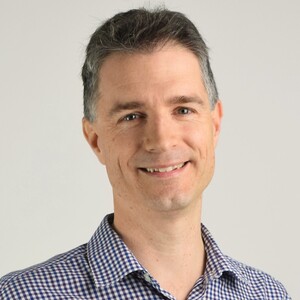
Mark Humphries
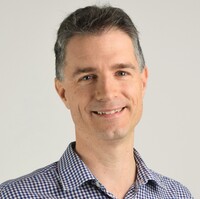
Mark Humphries
Mark has a Bachelor of Science (Honours), majoring in Pure Mathematics, and a Bachelor of Economics, both of which were completed at the University of Adelaide. He studied public key cryptography for his Honours in Pure Mathematics. He started with the company in 2006, and is currently the writing manager for Haese Mathematics.
What got you interested in mathematics? How did that lead to working at Haese Mathematics?
I have always enjoyed the structure and style of mathematics. It has a precision that I enjoy. I spend an inordinate amount of my leisure time reading about mathematics, in fact! To be fair, I tend to do more reading about the history of mathematics and how various mathematical and logic puzzles work, so it is somewhat different from what I do at work.
How did I end up at Haese Mathematics?
I was undertaking a PhD, and I realised that what I really wanted to do was put my knowledge to use. I wanted to pass on to others all this interesting stuff about mathematics. I emailed Haese Mathematics (Haese and Harris Publications as they were known back then), stating that I was interested in working for them. As it happened, their success with the first series of International Baccalaureate books meant that they were looking to hire more people at the time. I consider myself quite lucky!
What are some interesting things that you get to do at work?
On an everyday basis, it’s a challenge (but a fun one!) to devise interesting questions for the books. I want students to have questions that pique their curiosity and get them thinking about mathematics in a different way. I prefer to write questions that require students to demonstrate that they understand a concept, rather than relying on rote memorisation.
When a new or revised syllabus is released for a curriculum that we write for, a lot of work goes into devising a structure for the book that addresses the syllabus. The process of identifying what concepts need to be taught, organising those concepts into an order that makes sense from a teaching standpoint, and finally sourcing and writing the material that addresses those concepts is very involved – but so rewarding when you hold the finished product in your hands, straight from the printer.
What interests you outside mathematics?
Apart from the aforementioned recreational mathematics activities, I play a little guitar, and I enjoy playing badminton and basketball on a social level.
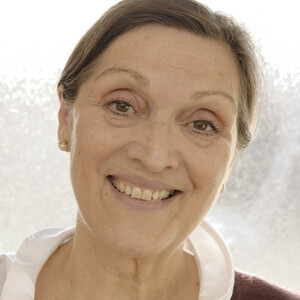
Pamela Vollmar
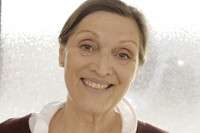
Pamela Vollmar
Pamela completed a Bachelor of Science with Honours at the University of East Anglia in the UK. She has also completed a Postgraduate Certificate of Education at the Cambridge Institute of Education.
When did you start teaching, and where have you taught?
I started teaching in 1973 at the Hewett School in Norwich, and taught all levels up to and including A level Pure, A Level Applied and S level Mathematics. I was also Pastoral Tutor to Year 11. I was then recruited by the British Council to be Head of Mathematics and Science at the English High School for Girls in Istanbul, where I stayed for 6 years. In 1985, I came to Frankfurt International School. I became Head of the Mathematics Department and have taught IB Mathematics at all levels. I was also elected by the faculty to the Board of Trustees of the school where I served for more than 6 years.
How did you come to collaborate with Haese Mathematics?
When Haese Mathematics brought out their first edition of Mathematics for the International Student MYP5, we bought some copies to have a look at. Shortly after, I received an email from their marketing department asking whether I would be willing to give them my evaluation of the book, which I did. Ray O'Farrell, responsible for marketing, got in touch, and I mentioned to him the problems that schools like ours were having in finding a set of suitable maths textbooks for grade 6-10 which would be rigorous enough to prepare students for IB. I also told him that we had even joked about contacting a publisher to produce such a series. Famous last words! This was the point where Ray asked whether I would be willing, in principle, to work with Haese Mathematics to produce such a series. I agreed....... and the rest is history!
What interests you outside mathematics?
Outside school, when I'm not looking after my family, I enjoy going to the theatre, both watching and acting. I love entertaining friends (and being entertained!), walking, and I read far too many crime/espionage novels. I also love travelling and (trying to speak) foreign languages; at the moment I am learning Japanese.
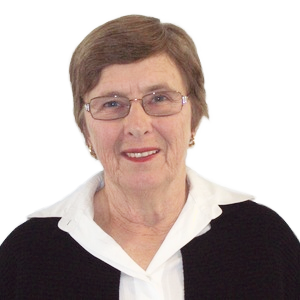
Sandra Haese
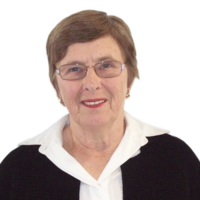
Sandra Haese
Sandra completed a Bachelor of Science at the University of Adelaide, majoring in Pure Mathematics and Statistics. She taught at Underdale High School and Westminster School before founding Haese and Harris Publications (now Haese Mathematics), together with husband Robert (Bob) and colleague Kim Harris.
What drew you to the field of mathematics?
I always found mathematics the easiest subject at school. I’m not sure why. I intended to study Chemistry at university, but found I didn’t enjoy it as much as I thought I would – so I came back to mathematics, and have been involved with it ever since.
What motivated you to switch from teaching to writing mathematics books?
Bob used to write notes for his class. Other teachers at the school used the notes, then teachers at other schools started asking for them. Eventually Bob said, “Well, I might as well start writing textbooks!”
Initially, I was proofreading. As the workload increased, I began editing as well as proofreading. It just gradually became a full-time job, between writing material, editing and proofreading it, and then distributing the books. These days, Michael does the editing and I do proofreading and audio.
How has the field of textbook publishing changed in the years since you started?
When we started, text was typed and worked solutions were handwritten. Bob would draw any graphics by hand.
We moved to typesetting, but writing a mathematics textbook with the printing tools available presented its own difficulties. For example, symbols had to be copied, cut and pasted by hand onto the original pages, which was very tedious and time-consuming! Fractions were also problematic: we would type a line containing all the numerators, and then a line underneath for all the denominators.
Now it’s all done by computers, which is very much easier, and quicker!
What interests you outside mathematics?
I own a few alpacas. I enjoy my garden - I don’t do much in it, but I enjoy it! I like listening to music; mainly classical, but I enjoy other genres as well.
I really love to travel. The scenery, the history of a place, its architecture, its art – all of those things fascinate me. As a result I also enjoy photography; I like taking pictures of the things I’ve seen and places I’ve experienced.
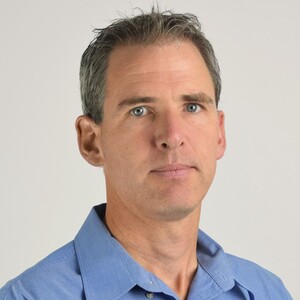
Michael Haese
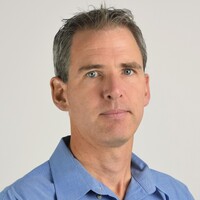
Michael Haese
Michael completed a Bachelor of Science at the University of Adelaide, majoring in Infection and Immunity, and Applied Mathematics. He studied laminar heat flow as part of his Honours in Applied Mathematics, and finished a PhD in high speed fluid flows in 2001. He has been the principal editor for Haese Mathematics since 2008.
What motivates you to write mathematics books?
My passion is for education as a whole, rather than just mathematics. In Australia I think it is too easy to take education for granted, because it is seen as a right but with too little appreciation for the responsibility that goes with it. But the more I travel to places where access to education is limited, the more I see children who treat it as a privilege, and the greater the difference it makes in their lives. But as far as mathematics goes, I grew up with mathematics textbooks in pieces on the kitchen table, and so I guess it continues a tradition.
What do you aim to achieve in writing?
I think a few things:
- I want to write to the student directly, so they can learn as much as possible from the text directly. Their book is there even when their teacher isn't.
- I therefore want to write using language which is easy to understand. Sure, mathematics has its big words, and these are important and we always use them. But the words around them should be as simple as possible, so the meaning of the terms can be properly explained to ESL (English as a Second Language) students.
- I want to make the mathematics more alive and real, not by putting it in contrived "real-world" contexts which are actually over-simplified and fake, but rather through its history and its relationship with other subjects.
What interests you outside mathematics?
Lots of things! Horses, show jumping and course design, alpacas, badminton, running, art, history, faith, reading, hiking, photography ....
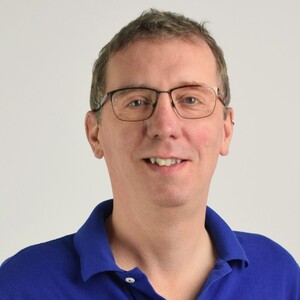
Chris Sangwin
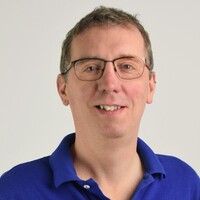
Chris Sangwin
Chris completed a BA in Mathematics at the University of Oxford, and an MSc and PhD in Mathematics at the University of Bath. He spent thirteen years in the Mathematics Department at the University of Birmingham, and from 2000-2011 was seconded half time to the UK Higher Education Academy “Maths Stats and OR Network“ to promote learning and teaching of university mathematics. He was awarded a National Teaching Fellowship in 2006. Chris Sangwin joined the University of Edinburgh in 2015 as Professor of Technology Enhanced Science Education.
What are your learning and teaching interests in mathematics?
I teach mathematics at university but am particularly interested in core pure mathematics which starts in school and continues to be taught at university. Solving mathematical problems is at the heart of mathematics, and I enjoy teaching problem solving at university.
What interests you outside mathematics?
I really enjoy hill walking and mountaineering, particularly spending time with friends in the hills.
Why do you choose to collaborate with a small publisher on the other side of the world?
There is a unique team spirit in Haese which other publishers don't have. This makes authorship much more collaborative than my previous experiences, which is really enjoyable and I'm sure leads to much better quality books for students which are, after all, the whole point.
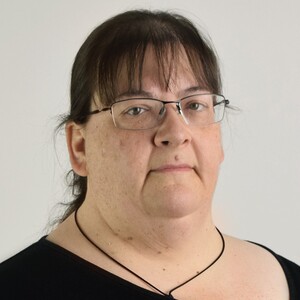
Philippa Sawyers
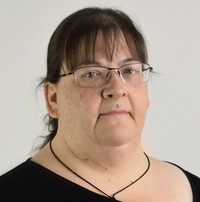
Philippa Sawyers
Born and raised in Wales, Philippa completed a Bachelor of Primary Education (Hons) in Music before going on to teach across the UK and internationally, spending time educating in Kuwait & China. She joined Haese Mathematics in 2008 and has since played a role in almost every department.
Philippa's focus while teaching was on special educational needs, and ensuring that all learners are presented with the opportunity to excel. Through her role with Haese Mathematics, she remains dedicated to making mathematics accessible for students and teachers through out the primary years.
Outside of mathematics, her interests include genealogy, music from a variety of genres and collecting cats.
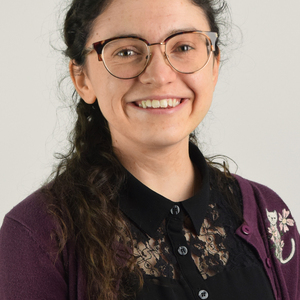
Eloise Quinn-Valentine
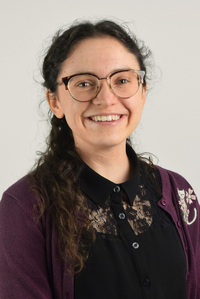
Eloise Quinn-Valentine
Eloise completed a Bachelor of Arts (Advanced) at Flinders University before joining Haese Mathematics in 2019, during her Honours year in English Literature. Since then, she has been undertaking further study in theology and ministry alongside her work at Haese.
Eloise was delighted to find a natural fit at Haese for her unusual combination of an English major and a Mathematics minor. She has been involved in a variety of projects with the company, all to communicate mathematics well to students and teachers, and help them understand the connection between mathematics and language. This has included writing and voicing tutorial videos, compiling dictionary entries of mathematical terms and, most recently, writing maths-themed readers for primary students. Eloise is passionate about education and is grateful to play a part in helping students around the world to learn.
Helen Prochazka
Helen Prochazka
Helen Prochazka has taught mathematics in Australian high schools and colleges for many years. Her enduring love for mathematics goes back to her childhood. She is a former president of the Mathematical Association of Tasmania and a regular contributor to the Australian Mathematics Teacher journal.
She is the author of the Super Mathematics series of high school textbooks, one of which was used as the text for an Open Learning course for adults. Her teaching career has been combined with other ventures such as publishing, and music and film production.
Her passions include Bhutan, felines, Mona, retro music and life. Helen has a particular interest in helping adults who find mathematics challenging.
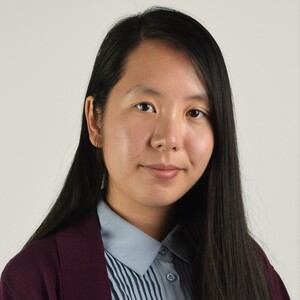
Ngoc Vo
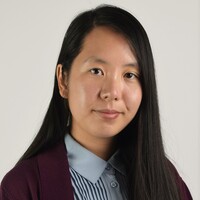
Ngoc Vo
Ngoc Vo completed a Bachelor of Mathematical Sciences at the University of Adelaide, majoring in Statistics and Applied Mathematics. Her Mathematical interests include regression analysis, Bayesian statistics, and statistical computing. Ngoc has been working at Haese Mathematics as a proof reader and writer since 2016.
What drew you to the field of mathematics?
Originally, I planned to study engineering at university, but after a few weeks I quickly realised that it wasn't for me. So I switched to a mathematics degree at the first available opportunity. I didn't really have a plan to major in statistics, but as I continued my studies I found myself growing more fond of the discipline. The mathematical rigor in proving distributional results and how they link to real-world data -- it all just seemed to click.
What are some interesting things that you get to do at work?
As the resident statistician here at Haese Mathematics, I get the pleasure of writing new statistics chapters and related material. Statistics has always been a challenging subject to both teach and learn, however it doesn't always have to be that way. To bridge that gap, I like to try and include as many historical notes, activities, and investigations as I can to make it as engaging as possible. The reasons why we do things, and the people behind them are often important things we forget to talk about. Statistics, and of course mathematics, doesn't just exist within the pages of your textbook or even the syllabus. There's so much breadth and depth to these disciplines, most of the time we just barely scratch the surface.
What interests you outside mathematics?
In my free time I like studying good typography and brushing up on my TeX skills to become the next TeXpert. On the less technical side of things, I also enjoy scrapbooking, painting, and making the occasional card.
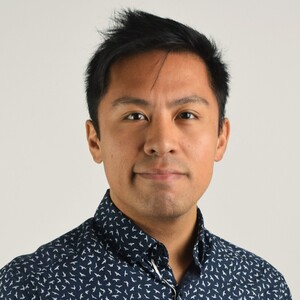
Michael Mampusti
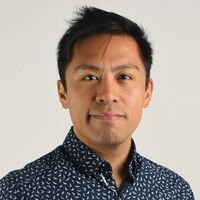
Michael Mampusti
Michael completed a Bachelor of Mathematics (Advanced) at the University of Wollongong. He studied fractal substitution tilings as part of his Honours in Pure Mathematics, and finished a PhD in operator algebraic dynamical systems in 2019.
Throughout his time at university, Michael was employed as a tutorial leader for a number of mathematics subjects. He enjoyed teaching a wide variety of students and helping them throughout their respective degrees. The transition into the education sector was therefore a natural move for him after graduating from university. Michael has worked at Haese Mathematics as a mathematician and proofreader since 2019.
Outside of work, Michael enjoys practicing music, playing video games, and getting destroyed by the competition in the local squash scene.